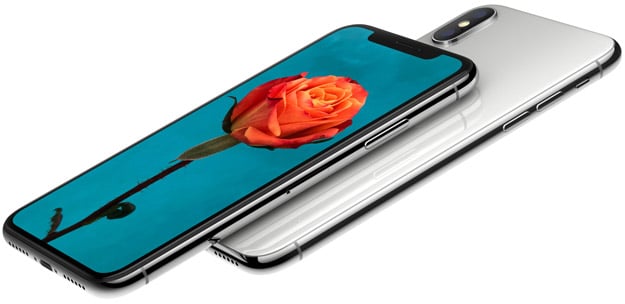Apple's iPhone X OLED Display Means Big Bucks For Samsung

Apple and Samsung might be fierce rivals on the surface, but behind the scenes, it is a slightly different story. It actually benefits Samsung if Apple's flagship iPhone X handset racks up a bunch of sales, because if does, Samsung will see a surge in organic light emitting diode (OLED) display panel orders—Samsung is the one manufacturing for and selling OLED panels to Apple.
It is a bit of an odd relationship considering the competitive landscape that exists. Apple and Samsung are the two biggest smartphone players in the world, and they happen to sit on opposite sides of the OS spectrum. Be that as it may, Apple has long relied on Samsung as a part manufacturer. This is an arrangement made out of necessity rather than anything else—Apple and Samsung have a contentious relationship that has seen the two duke it out in court over the years.
"These are two of the largest companies on the planet deeply tied at the hip and directly competitive," said David Yoffie, a professor at Harvard Business School, who has studied Apple and is a board member at Intel, told The Wall Street Journal. "That makes this stand out compared with almost any relationship you can think of."
Samsung over the years has manufactured a wide range of hardware for Apple, including display screens, radio frequency printed circuit boards (PCBs), DRAM and NAND flash memory chips, batteries, multi-layer capacitors, system-on-chips (SoCs).
These unique relationship is key for both companies. As it pertains to Apple, the iPhone accounts for two-thirds of the company's multi-billion dollar business. Without the iPhone, Apple is not one of the richest companies in the world, and its market capitalization certainly would not be anywhere near $$797.2 billion, as it stands now.
Far from a one-sided relationship, these types of manufacturing contracts are precisely why Samsung was able to withstand a $5.3 billion hit from recalling its Galaxy Note 7 device due to defective batteries. Unlike Apple, Samsung's bottom line is not so heavily dependent on a single product, or even a single product category. Upticks in display and semiconductor sales led to a swift rebound for Samsung, rather than what could have been a rapid decline under different circumstances.
Of course, there are other manufacturers that Apple could turn to for certain components, and in some cases it does. But Samsung's advantage is its capacity and technical prowess—it is capable of producing advanced parts, and supplying them on a scale large enough to satisfy rampant demand for iPhone handsets.

